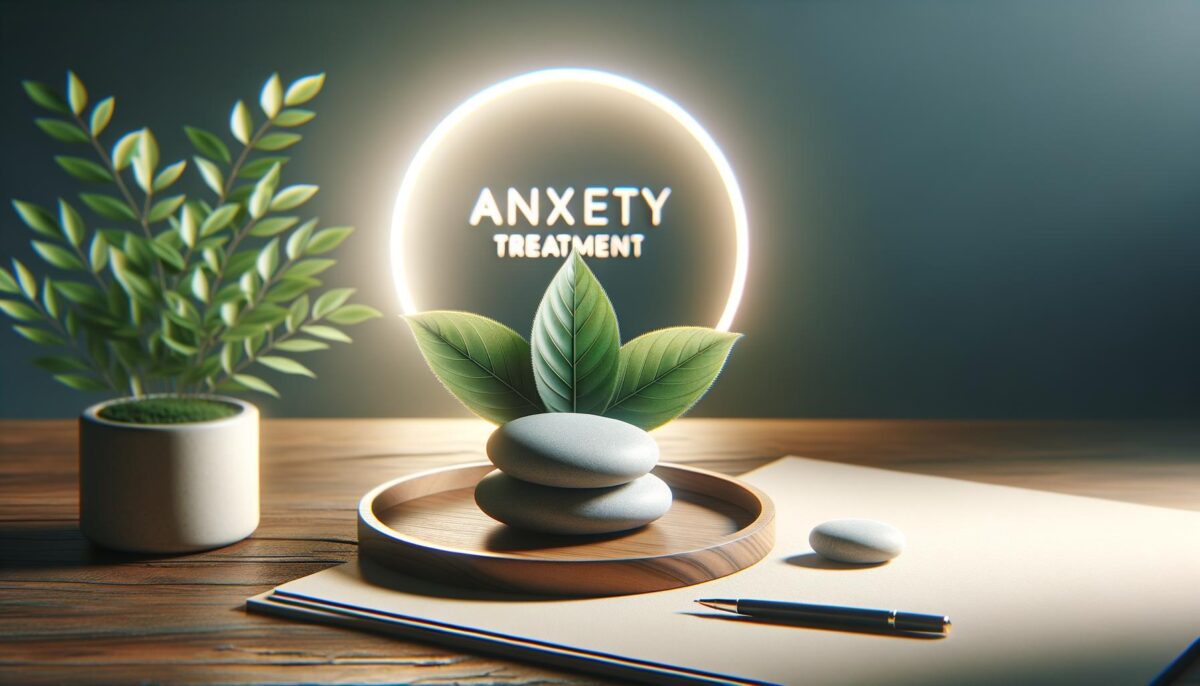Recognizing the Impact of Anxiety
Anxiety is more than just occasional worry or stress—it can significantly impact daily life, affecting both mental and physical health. Understanding the nature of anxiety is crucial before exploring various anxiety treatments. Often, symptoms manifest as persistent nervousness, difficulty concentrating, and even physical ailments like headaches or stomach discomfort. Recognizing these symptoms early is vital to address them effectively. Anxiety disorders, such as generalized anxiety disorder, social anxiety, and panic disorder, each present unique challenges and require personalized approaches to treatment. By identifying the specific type of anxiety disorder, individuals can better navigate the healthcare system to receive targeted support and improve their well-being.
Exploring Different Anxiety Treatments
There is a broad array of anxiety treatments available, reflecting the diverse needs of individuals experiencing this condition. Medications play a significant role in treatment plans. Options include:
- Selective Serotonin Reuptake Inhibitors (SSRIs): These are often prescribed as a first-line treatment due to their effectiveness in regulating mood.
- Benzodiazepines: Usually prescribed for short-term relief, these can help manage acute anxiety episodes.
- Tricyclic Antidepressants: Sometimes used when SSRIs are ineffective, though they may come with more side effects.
Each medication has specific benefits and potential side effects, so consulting with a healthcare provider can guide the best choice for the patient.
The Role of Therapy in Managing Anxiety
Therapy is a cornerstone of anxiety treatment, offering strategies to manage symptoms effectively. Cognitive Behavioral Therapy (CBT) is renowned for its structured approach in identifying and changing negative thought patterns that contribute to anxiety. Beyond CBT, other therapeutic approaches include:
- Mindfulness-Based Therapy: Cultivates present-moment awareness to reduce anxiety.
- Exposure Therapy: Gradually exposes patients to anxiety-provoking situations to desensitize their responses.
- Dialectical Behavior Therapy (DBT): Focuses on emotional regulation and mindfulness skills.
Therapists can tailor these approaches based on individual needs, creating a supportive environment for exploring underlying issues related to anxiety.
Lifestyle Changes and Holistic Approaches
In addition to traditional treatments, lifestyle changes can significantly impact anxiety management. Incorporating regular physical activity, such as yoga or running, can enhance mood and reduce stress levels. Dietary adjustments, like increasing Omega-3 fatty acids and reducing caffeine, are also beneficial. Holistic approaches involve:
- Meditation and Relaxation Techniques: Boosts mental flexibility and reduces tension.
- Aromatherapy: Utilizing essential oils like lavender for calming effects.
- Breathing Exercises: Simple techniques to counteract hyperventilation and stress.
By addressing anxiety from multiple angles, individuals can create a more balanced and resilient lifestyle.
Support Systems and Community Resources
Building a solid support system is vital in managing anxiety. Friends and family can offer emotional support, while community resources provide valuable outlets for overcoming challenges. Support groups, either in-person or online, connect individuals with others facing similar experiences, facilitating shared learning and mutual encouragement. Additionally, educational resources and workshops can empower individuals with knowledge and strategies for overcoming anxiety. By tapping into these networks, those affected by anxiety can find strength in the community, preventing feelings of isolation common with this condition.
Conclusion: Navigating Your Path to Wellness
Anxiety treatments are not one-size-fits-all; they require personalized strategies tailored to individual needs. Whether through medication, therapy, lifestyle changes, or community support, there are numerous pathways to explore. Empowerment through education and proactive choices is key to overcoming anxiety, allowing individuals to reclaim control of their health and happiness. Reach out to healthcare professionals, tap into community resources, and explore holistic approaches to find the treatment plan that best suits your unique journey. Remember, you are not alone, and effective solutions are within reach.
